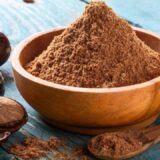How To Prevent Abdominal Pain In Ulcerative Colitis?
Ulcerative colitis (UC) is a chronic inflammatory bowel disease (IBD) that affects the colon, leading to symptoms such as abdominal pain, diarrhea, blood in stools, and fatigue. Abdominal pain is one of the most common and distressing symptoms, often worsened during flare-ups.
Managing this pain, along with the underlying condition, is essential for improving the quality of life for those living with UC. This guide explores various methods to prevent and manage abdominal pain through lifestyle changes, dietary adjustments, exercise, hydration, and natural remedies.
1. Manage Stress Effectively
a. Recognize the Impact of Stress on UC: Stress is a major contributing factor to the exacerbation of ulcerative colitis symptoms, particularly abdominal pain. Stress can influence the immune system, leading to increased inflammation in the colon, which in turn may trigger flare-ups. It’s essential to understand how mental and emotional states affect physical health.
b. Practice Stress-Reduction Techniques: Various relaxation techniques can help reduce stress levels. Meditation, deep breathing exercises, and mindfulness practices focus on calming the mind and reducing the body’s stress response. Engaging in activities that promote relaxation, such as listening to music, reading, or spending time in nature, can further aid in managing stress.
c. Prioritize Sleep and Rest: Inadequate sleep can worsen UC symptoms, especially abdominal pain, by affecting immune function and increasing sensitivity to pain. Aim for 6-8 hours of restful sleep each night to support the body’s healing processes.
d. Avoid Stressful Environments: While it’s not always possible to eliminate all stress, identifying stressful triggers at home or work can be beneficial. For instance, setting boundaries, seeking support from loved ones, or using time management strategies can reduce stress levels. In some cases, seeking professional counseling or therapy may be beneficial.
2. Adopt a Diet Tailored for Ulcerative Colitis
a. Reduce Sugar, Salt, and Processed Foods: Highly processed foods, especially those with excessive sugar and salt, can increase inflammation and aggravate the gut lining, worsening UC symptoms. Limiting these foods helps prevent irritation and inflammation in the intestines.
b. Avoid Lactose, Gluten, and High-Fiber Foods: Lactose, gluten, and foods rich in insoluble fiber can be difficult to digest and may lead to bloating, cramping, or diarrhea in UC patients. It’s important to identify and avoid foods that trigger symptoms. Many individuals with UC find relief by eliminating dairy, wheat, and high-fiber foods from their diet.
c. Opt for Soluble Fiber and Low-Fat Foods: While fiber can be beneficial, it is important to focus on soluble fiber, which is easier to digest and can help with bowel regularity. Soluble fiber is found in foods like oats, apples, and carrots. Incorporating low-fat, easily digestible foods such as lean proteins, cooked vegetables, and simple carbohydrates helps maintain balanced nutrition without irritating the intestines.
d. Experiment with Psyllium Husk: For those without significant diarrhea, psyllium husk (a source of soluble fiber) can be a useful supplement. It helps bulk up stools and can ease abdominal discomfort by controlling inflammation and promoting regular bowel movements. Always consult a doctor before adding supplements to your diet.
3. Engage in Regular Physical Activity
a. Choose Mild to Moderate Exercises: Exercise is crucial for overall well-being, but it’s important to choose activities that do not strain the body. Mild to moderate exercises such as walking, swimming, and light cycling can improve circulation, promote digestion, and reduce overall stress, all of which are beneficial for managing UC symptoms.
b. Incorporate Yoga for Gut Health: Yoga is especially helpful for UC patients, as it promotes digestion, improves blood circulation to abdominal organs, and aids in relaxation. Certain yoga poses specifically target the abdominal area, helping to reduce bloating and ease cramping. Poses like Child’s Pose, Seated Forward Fold, and Supta Baddha Konasana (Reclining Bound Angle) are excellent for relieving tension in the abdomen.
c. Avoid Over-Exertion: While regular exercise is beneficial, it’s important not to push the body too hard. Intense or excessive physical activity can trigger a flare-up. Focus on low-impact activities that support long-term health without causing strain.
4. Stay Hydrated
a. Prevent Dehydration During Flare-Ups: Diarrhea, a common symptom of ulcerative colitis, can lead to significant fluid loss, increasing the risk of dehydration. This dehydration can worsen abdominal cramping and overall discomfort. It’s crucial to stay hydrated, especially during flare-ups, to prevent dehydration and maintain healthy body functions.
b. Drink Plenty of Water: Aim to drink at least 8 cups (64 ounces) of water per day. During flare-ups, increase water intake to replenish fluids lost through diarrhea. Consider sipping water throughout the day to stay hydrated.
c. Opt for Electrolyte Solutions: When experiencing severe diarrhea, water alone may not be sufficient. Electrolyte solutions or drinks can help replenish not only fluids but also essential minerals such as sodium, potassium, and magnesium. These minerals play a critical role in maintaining muscle function, which may help reduce abdominal cramping.
5. Incorporate Herbal Remedies
a. Utilize Anti-Inflammatory Herbs: Certain herbs have well-documented anti-inflammatory properties that can help reduce inflammation in the gut, alleviate pain, and promote healing. Turmeric (Curcuma longa) contains curcumin, a powerful compound known for its anti-inflammatory and antioxidant effects. Boswellia serrata (Shallaki) is another herb with proven anti-inflammatory benefits.
b. Try Arjuna for Bleeding Control: Arjuna (Terminalia arjuna) is an herb commonly used in Ayurvedic medicine to manage gastrointestinal conditions. It is particularly effective in controlling intestinal bleeding and promoting healing of the mucosal lining of the intestines.
c. Use Kutaz for Dysentery and Diarrhea Relief: Kutaz (Holarrhina anti-dysenteric) is an herb known for its ability to treat diarrhea and dysentery. It is beneficial for UC patients who experience frequent diarrhea during flare-ups, as it helps firm stools and reduce discomfort.
d. Combine Herbal Remedies with Medical Treatment: Herbal remedies should be considered as complementary treatments and used alongside medical treatments prescribed by a healthcare provider. Always consult your doctor before starting any new herbal regimen, as some herbs may interact with medications or cause adverse effects.
6. Monitor and Control Medication Usage
a. Follow Medical Advice: While lifestyle changes and herbal remedies can be helpful, medical management is essential in controlling ulcerative colitis. Prescription medications such as aminosalicylates, corticosteroids, and immunosuppressants may be necessary to reduce inflammation and prevent flare-ups. Follow your doctor’s advice regarding medication dosages and usage.
b. Minimize the Use of Steroids:
Steroids are often prescribed during flare-ups, but long-term use can lead to side effects such as weight gain, bone thinning, and increased susceptibility to infections. Minimize the use of steroids whenever possible by incorporating lifestyle and dietary changes to control UC symptoms.
c. Consider Probiotics and Supplements:
Probiotics, which help restore beneficial bacteria in the gut, can be beneficial for UC patients. Certain supplements, like omega-3 fatty acids or vitamin D, may help reduce inflammation and support immune function. Always consult a healthcare provider before adding supplements to your routine.
7. Regular Medical Check-ups
a. Monitor Disease Progression: Regular check-ups with a gastroenterologist are vital for assessing the progress of ulcerative colitis and adjusting treatment plans as needed. Monitoring the disease helps catch complications early and prevent unnecessary flare-ups.
b. Adjust Treatment Plans as Needed: Ulcerative colitis is a dynamic condition, and treatment plans may need to be modified as symptoms change. Regular consultations with your doctor ensure that the most effective medications and lifestyle changes are being used to manage symptoms and prevent abdominal pain.
By integrating these strategies into daily life, individuals with ulcerative colitis can better manage their abdominal pain and reduce flare-ups. A combination of stress management, a tailored diet, regular exercise, proper hydration, herbal supplements, and ongoing medical support can help control UC symptoms and significantly improve overall quality of life.
Stay Healthy With Planet Ayurveda
Author Bio: Dr. Vikram Chauhan is an Ayurvedic practitioner based in Mohali, India. He is spreading the knowledge of ancient healing treatment Ayurveda, not only in India but also abroad. Dr. Vikram has conducted many seminars and workshops on herbal treatment in various nations.

























